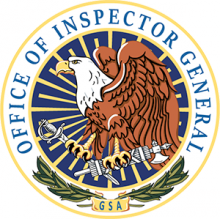To promote equal opportunity and identify and eliminate discriminatory practices, Federal regulation mandates that agencies review and respond to all employment-related discrimination complaints. At the U.S. Department of Housing and Urban Development (HUD), the Office of Departmental Equal Employment Opportunity (ODEEO) is responsible for the enforcement of Federal laws related to eliminating all forms of discrimination in HUD’s employment practices and leading HUD’s efforts to prevent unlawful discrimination.
During a formal complaint process, HUD conducts an investigation to gather information on the alleged discrimination. The investigation process concludes when HUD provides the complainant with a completed report of the investigation and notifies the complainant of their right to elect either a hearing or a final agency decision (FAD). A FAD is a report that evaluates the merits of each claim of discrimination and determines whether the complainant was or was not discriminated against.
The percentage of ODEEO’s timely investigations that converted into formal equal employment opportunity (EEO) complaints improved from 51 percent in fiscal years (FY) 2017 to 93 percent in FY 2023, an 84 percent increase. However, ODEEO did not improve the timeliness of FADs. ODEEO issued all FADs in FY 2022 and FY 2023 beyond the regulated timeframe. Several factors impacted HUD’s timeliness in processing formal EEO complaints. For example, ODEEO had an external EEO vendor that did not meet ODEEO’s timeliness expectations. To address this issue, in October 2023, ODEEO contracted with a new vendor. The new contract included detailed provisions to ensure timely and quality services, such as criteria for contract deliverables, a performance requirement summary with clear quality standards and monetary incentives, a quality control plan, and a quality surveillance plan.
Other factors that affected timeliness were ODEEO’s lack of internal milestones and an in-house FAD writer. In 2023, ODEEO created its own internal milestones for the EEO complaint process in an effort to improve monitoring and ensure timeliness. For the investigations, the internal milestones ensured that ODEEO staff acknowledged and accepted formal complaints quickly to allow investigators the maximum amount of time possible to conduct the investigation. ODEEO management monitored these milestones and discussed them with staff during one-on-one meetings to ensure that complaints remained on track. Before hiring a FAD writer, ODEEO relied exclusively on its external vendor to write its FADs. According to ODEEO staff, the previous vendor wrote FADs that were longer than necessary and often included errors, resulting in a lengthy editing process. In 2024, ODEEO hired an in-house FAD writer.
Additionally, ODEEO previously had a centralized case management system to track EEO complaints but lost access to the system in September 2019. To improve ODEEO’s ability to track complaints throughout the EEO complaints process and report accurate data, ODEEO reacquired iComplaints—an EEO complaints case management system—in September 2021. According to an ODEEO staff member, only after ODEEO reacquired a case management system and began tracking all complaints in the system was it able to focus on improving timeliness. The centralized case management system also improved data accuracy.
Finally, between FY 2020 and FY 2022, ODEEO’s high staff turnover affected the timeliness of the formal complaint process. During those years, ODEEO lost a total of 13 employees due to retirements or transfers to other Government agencies, including the Director and Deputy Director of ODEEO. Given that ODEEO’s staffing ranged from 15 to 18 people during those years, this turnover significantly impacted the program office. In FY 2021, ODEEO began to make changes to address its turnover and improve its retention. Specifically, ODEEO hired new staff and started to focus on improving retention by prioritizing training and professional development.
While these changes had a varied impact on the timeliness of ODEEO’s investigations and FADs thus far, they demonstrated ODEEO’s continued commitment to process improvement. Due to ODEEO’s demonstrated efforts to improve timeliness, we are not issuing a recommendation at this time.










